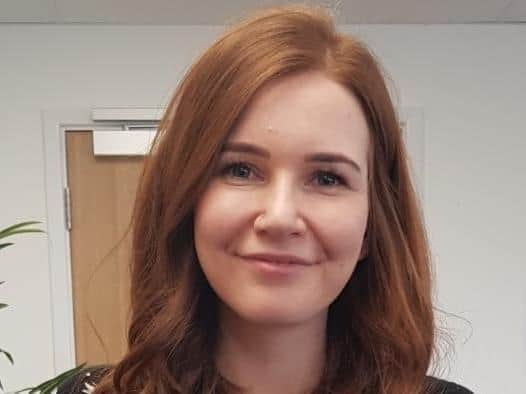Depression breakthrough from the University of Sheffield that could boost treatment
The groundbreaking results reveal the need to more precisely diagnose mental health conditions so that the most suitable treatments can be accessed, researchers from the University of Sheffield say.
Globally, roughly 264 million people suffer from depression and only half are expected to recover, even after treatment.
Advertisement
Hide AdAdvertisement
Hide Ad

Depression is characterised by a variety of cognitive (low mood, repetitive negative thoughts, suicidal ideas), affective (loss of pleasure and motivation), and somatic (difficulties with sleep and changes in appetite) symptoms.
However, not all patients will experience all of these symptoms.
The wide range of symptoms experienced under the single diagnosis of ‘depression’ are thought to be masking the fact that some treatments are more effective for certain patients.
But researchers say selecting treatments based on a more “precise assessment” of a patient’s symptom profile could improve clinical outcomes.
Advertisement
Hide AdAdvertisement
Hide Ad

Dr Melanie Simmonds-Buckley, the lead author from the University of Sheffield, said: “Given how different depression can be from one person to the next, a treatment that works for one person may not work as well for another.
“Our findings have helped to identify how symptom profiles can be grouped into replicable subtypes of depression, showing that not all patients respond to CBT treatment in the same way.
“We now want to understand which other available treatments work best for patients with each depression subtype to help them to access the most appropriate treatment.”
As part of the study a team of researchers from the university and the organisation Ieso Digital Health1, analysed the type and severity of symptoms experienced by more than 8,000 patients receiving in-person cognitive behavioural therapy (CBT) through the NHS.
Advertisement
Hide AdAdvertisement
Hide Ad

They were then able to group patients into five broad depression subtypes: mild, severe, cognitive-affective, somatic and typical.
Further research showed that distinct subtypes respond differently to treatment.
Results revealed cognitive-affective patients were more likely to engage, attend more sessions, and attain reliable improvement, compared to the typical and somatic types.
Meanwhile, patients with a typical subtype were more likely to drop out of treatment than those with cognitive-affective and somatic subtypes.
Advertisement
Hide AdAdvertisement
Hide AdDr Ana Catarino, Director of Clinical Science at Ieso, and an author on both papers, added: “It has been hugely valuable to replicate our original findings from internet-enabled CBT with patients who have received CBT face-to-face.
"Our hope is that the subtyping algorithm we have developed can be applied more broadly and, ultimately, lead to improved outcomes for patients through a more precise approach to diagnosis and treatment selection.
"The next step towards this goal will be a clinical trial to uncover the specific treatment types that work best for each subtype.”
The results from this study replicated findings from a 2020 published paper which analysed data from nearly 10,000 NHS patients who received internet enabled CBT2.
__________
Support The Yorkshire Post and become a subscriber today.
Advertisement
Hide AdAdvertisement
Hide AdYour subscription will help us to continue to bring quality news to the people of Yorkshire. In return, you'll see fewer ads on site, get free access to our app and receive exclusive members-only offers. Click here to subscribe.
